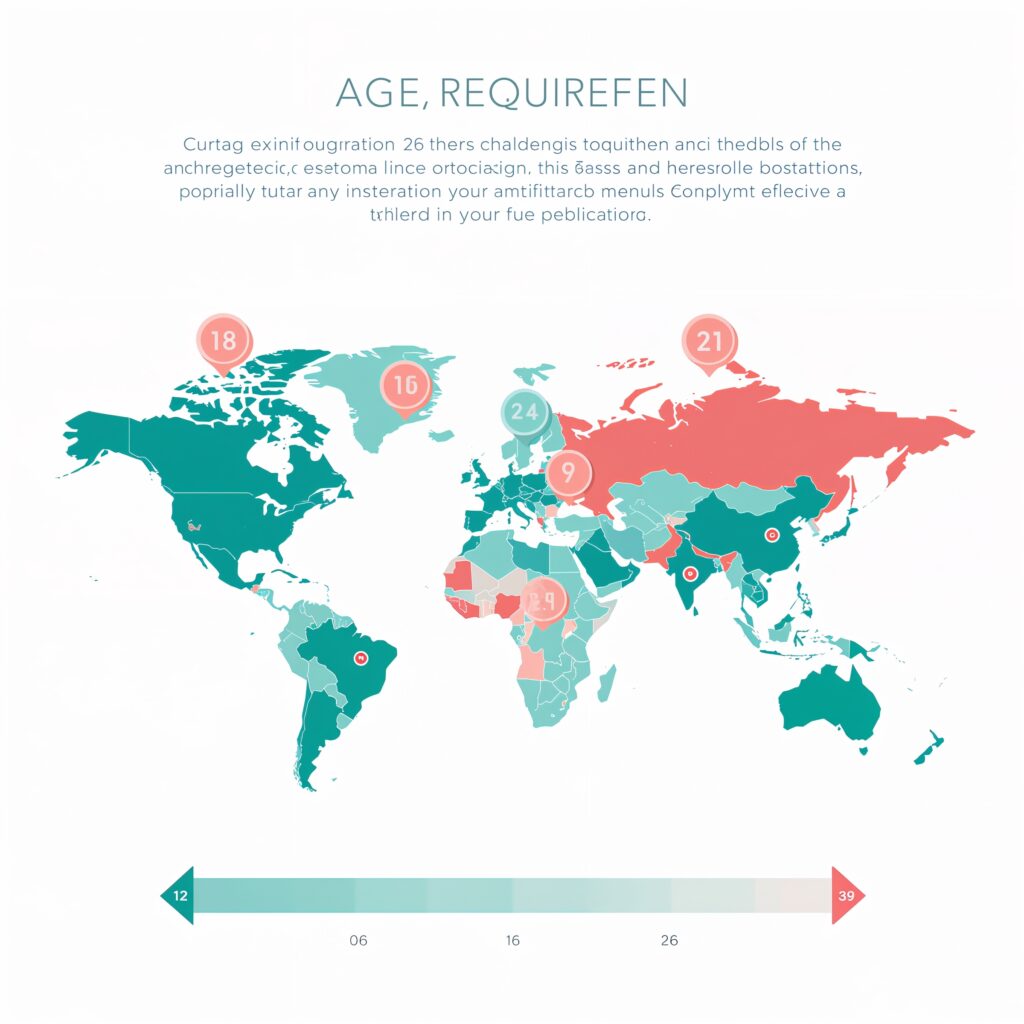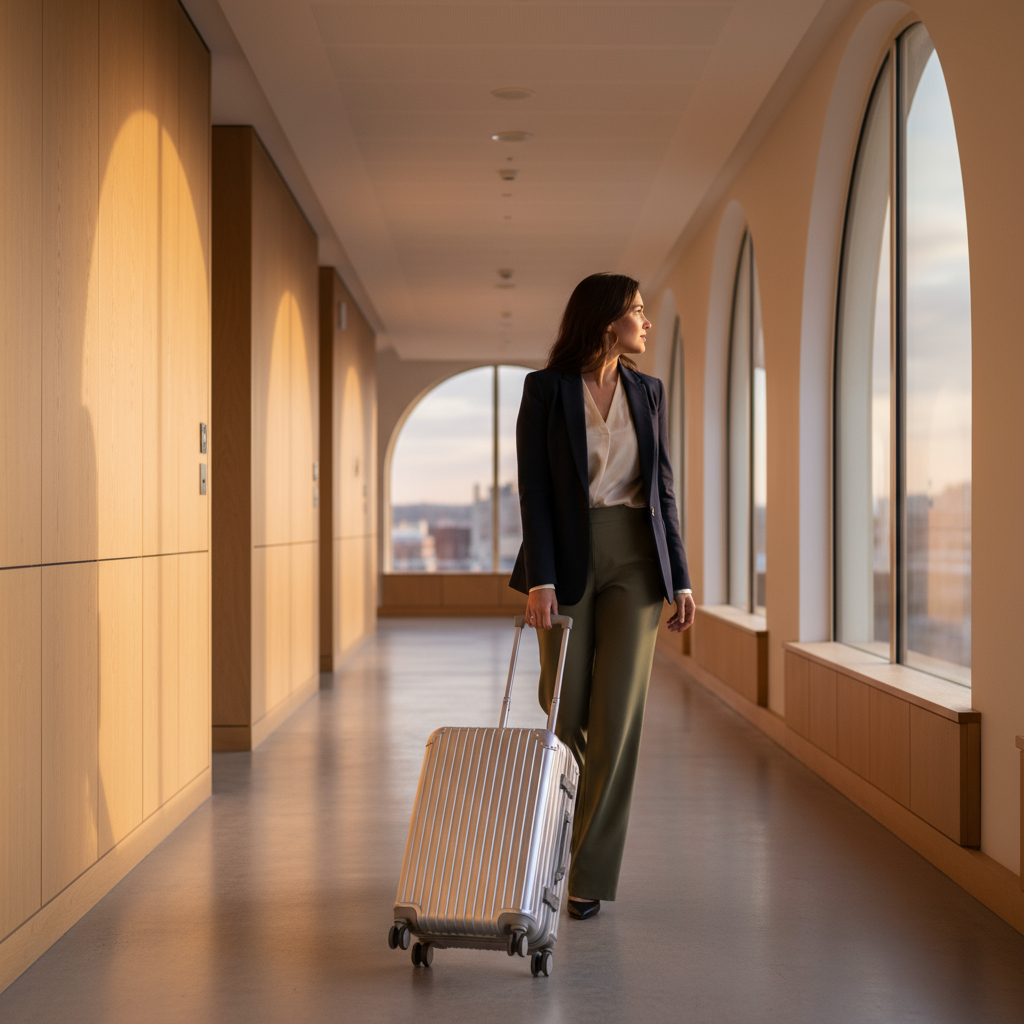Planning your first solo adventure? You’re not alone—literally. Solo travel has skyrocketed by 42% in the past five years, with millions of independent explorers discovering the freedom of booking a hotel alone. Yet, despite this growing trend, many first-time solo travelers still feel overwhelmed by questions about age requirements, safety concerns, and the practical aspects of securing accommodation independently.
Whether you’re wondering “What should I avoid when booking a hotel alone?” or concerned about finding safe, accessible lodging, this comprehensive guide addresses every aspect of solo hotel booking. From navigating age restrictions to mastering safety protocols and elevating your independent travel experience, we’ll transform your apprehension into confidence.
Understanding Hotel Age Requirements: The Legal Landscape
Why Age Restrictions Exist (And How They Vary)

When booking a hotel alone, age requirements aren’t arbitrary rules—they’re rooted in complex legal frameworks that vary dramatically across jurisdictions. Understanding these foundations helps you navigate policies more effectively.
Legal & Contractual Capacity:
- United States: Most hotels require guests to be 18 or 21 (varies by state and property)
- United Kingdom: Generally 18 years minimum
- European Union: Typically 18, with some countries accepting 16 with parental consent
- Asia-Pacific: Ranges from 18-20, with Japan often requiring 20
| Region | Common Minimum Age | Exceptions |
|---|---|---|
| USA (Most States) | 21 | Some accept 18 with credit card |
| UK | 18 | Rare exceptions for 16+ with guardian consent |
| EU Countries | 18 | Some hostels accept 16+ |
| Canada | 18-19 | Varies by province |
| Australia | 18 | Youth accommodations may differ |
The Business Perspective: Liability and Risk Management
Hotels enforce age restrictions primarily for three critical reasons:
- Financial Responsibility: Minors cannot legally enter binding contracts, making damage recovery problematic
- Insurance Requirements: Many hotel insurance policies mandate adult-only guest registration
- Alcohol Access: Properties with minibars or bars face additional liability with underage guests
“Age policies aren’t about discrimination—they’re about protecting both the property and young travelers from legal complications,” explains Sarah Chen, a hospitality law specialist with 15 years of experience.
Navigating Age Restrictions: Practical Solutions for Young Solo Travelers
Verifying Hotel Policies Before Booking
When booking a hotel alone, especially as a younger traveler, follow this verification checklist:
Step-by-Step Verification Process:
- ✅ Check the hotel’s official website FAQ section
- ✅ Review booking platform terms (often buried in fine print)
- ✅ Call the property directly—policies can differ from chain standards
- ✅ Request written confirmation via email for your records
- ✅ Screenshot all policy confirmations before traveling
Alternative Accommodation Options for Under-21 Travelers
If traditional hotels aren’t accessible, consider these alternatives:
Youth-Friendly Options:
- Hostels: Often accept guests 16+ (with private rooms available)
- University Dorms: Summer availability for travelers 18+
- B&Bs: Sometimes more flexible with family-run properties
- Extended Stay Hotels: May have different age policies
⚠️ Critical Warning: Never misrepresent your age when booking. This can result in:
- Immediate booking cancellation
- Loss of all prepaid fees
- Potential legal consequences
- Being stranded without accommodation
Essential Safety Strategies for Solo Hotel Stays
Pre-Booking Safety Research
What should I avoid when booking a hotel alone? Start by eliminating these red flags:
Major Safety Red Flags to Avoid:
- Hotels with consistently poor security reviews
- Properties lacking 24/7 reception
- Accommodations in isolated areas
- Hotels without secure key card systems
- Properties with reports of harassment toward solo travelers
Strategic Location Selection
Avoid hotels far from public transport for solo travelers—this isn’t just about convenience, it’s a fundamental safety consideration. Properties near transit hubs offer:
- Quick escape routes in emergencies
- Well-lit, populated areas reducing isolation risks
- Easy access to restaurants, pharmacies, and services
- Lower transportation costs eliminating expensive late-night rides
- Connection to local communities rather than tourist-only zones
Location Assessment Checklist:
- Within 10-minute walk of metro/bus station
- Multiple transportation options available
- Well-lit walking routes from station
- Active area during evening hours
- Near essential services (pharmacy, convenience store)
Check-In and Room Security Protocol
Once you arrive, implement these security measures immediately:
First 10 Minutes in Your Room:
- Test all locks (door, windows, connecting doors)
- Locate emergency exits and count doors to stairwell
- Check peephole functionality
- Test phone connectivity to reception
- Inspect bathroom locks and shower curtain opacity
- Program emergency numbers into your phone
- Take photos of your room number and hotel address
During Your Stay: Maintaining Safety
Daily Safety Habits:
- Use “Do Not Disturb” sign even when out (creates occupancy illusion)
- Never announce your room number publicly
- Vary your routine to avoid predictability
- Keep one emergency contact updated on your location
- Store valuables in safe or hidden locations
- Request escort service if returning late
Solo Female Traveler Safety: Additional Considerations

Female travelers booking a hotel alone should implement these additional precautions:
Room Selection Strategy:
- Request rooms on floors 2-6 (avoiding ground and top floors)
- Choose rooms near elevators but not directly adjacent
- Avoid rooms at corridor ends (harder to call for help)
- Request rooms away from stairwells (less foot traffic)
Trust Your Instincts Protocol:
“If something feels wrong, it probably is. Never ignore your gut feeling for the sake of politeness,” advises veteran solo traveler Maria Rodriguez, who has visited 67 countries alone.
Elevating Your Solo Hotel Experience
Choosing the Right Hotel Type
Different hotel styles offer unique advantages for solo travelers:
| Hotel Type | Best For | Key Benefits |
|---|---|---|
| Boutique Hotels | Personalized service seekers | Intimate atmosphere, memorable experiences |
| Chain Hotels | Safety-conscious travelers | Consistent standards, loyalty rewards |
| Apart-Hotels | Extended stays | Kitchen facilities, home-like comfort |
| Design Hotels | Social solo travelers | Common areas, networking opportunities |
| Business Hotels | Digital nomads | Work facilities, professional atmosphere |
Smart Booking Strategies for Solo Travelers
Maximize Value When Booking Alone:
- Book directly for better cancellation policies
- Join loyalty programs for room upgrades
- Use “single supplement” filters on booking sites
- Consider shoulder season for better rates
- Book refundable rates for flexibility
Making Solo Dining Enjoyable
Transform potentially awkward meal times into enjoyable experiences:
Solo Dining Confidence Tips:
- Choose bar seating for natural conversation opportunities
- Bring a book or journal as companions
- Try room service for ultimate relaxation
- Explore hotel breakfast buffets during off-peak hours
- Use dining time for planning your day
Common FAQs About Booking Hotels Alone
Q: Can I book a hotel at 18 with a debit card? A: Many hotels accept debit cards but may place larger holds (up to $500) for incidentals. Confirm policies beforehand.
Q: Do I need a credit card matching my name? A: Yes, most hotels require the card used for booking to match the guest’s ID at check-in.
Q: Can I have visitors if I booked a single room? A: Policies vary. Some hotels allow registered day visitors; overnight guests usually incur additional charges.
Q: What documents do I need for solo check-in? A: Government-issued photo ID (passport or driver’s license) and the credit/debit card used for booking.
Q: Are hostels actually safer than hotels for solo travelers? A: Both can be safe with proper research. Hostels offer built-in social networks; hotels provide more privacy and security features.
Technology Tools for Solo Hotel Booking
Leverage these digital resources when booking a hotel alone:
Essential Apps & Tools:
- HotelTonight: Last-minute bookings with verified properties
- SafetyWing: Travel insurance designed for solo travelers
- Google Street View: Virtual neighborhood reconnaissance
- TripIt: Itinerary organization and sharing
- WhatsApp: International communication with hotels
Creating Your Solo Hotel Booking Action Plan
Pre-Booking Checklist
Before confirming any reservation:
- Verify age requirements match your situation
- Avoid hotels far from public transport for solo travelers
- Read recent reviews filtering for solo traveler experiences
- Confirm cancellation policies
- Check neighborhood safety ratings
- Verify included amenities
- Screenshot all booking confirmations
Booking Day Protocol
- Use secure Wi-Fi or cellular data
- Book directly when possible
- Pay with credit card for protection
- Add special requests (quiet room, high floor)
- Note confirmation numbers in multiple places
Pre-Arrival Preparation
- Share itinerary with trusted contact
- Download offline maps
- Save hotel contact information
- Research transportation options
- Prepare check-in documents
Conclusion: Embrace Your Solo Hotel Adventure
Booking a hotel alone represents more than securing accommodation—it’s claiming your independence and embracing the transformative power of solo travel. Armed with this comprehensive guide, you’re prepared to navigate age requirements, prioritize safety without paranoia, and create memorable experiences on your own terms.
Remember: millions of solo travelers successfully book hotels independently every year. The key lies not in avoiding all risks but in making informed decisions. What should I avoid when booking a hotel alone? Simply put: avoid compromising on safety, avoid hotels far from public transport for solo travelers, and avoid letting fear overshadow the incredible freedom solo travel offers.
Your solo hotel stay isn’t just about having a place to sleep—it’s about discovering your capability, building confidence, and collecting stories that belong entirely to you. Whether you’re 18 or 80, traveling for business or pleasure, your solo hotel booking journey starts with knowledge and ends with empowerment.
Ready to book your solo adventure? Start by choosing one destination, researching thoroughly, and taking that first brave step. The world of independent travel awaits, and now you have everything you need to explore it safely and confidently.
Have questions about booking a hotel alone? Share your experiences or concerns in the comments below. For more solo travel resources, explore our guides on [Solo Travel Packing Essentials] and [Best Cities for First-Time Solo Travelers].


